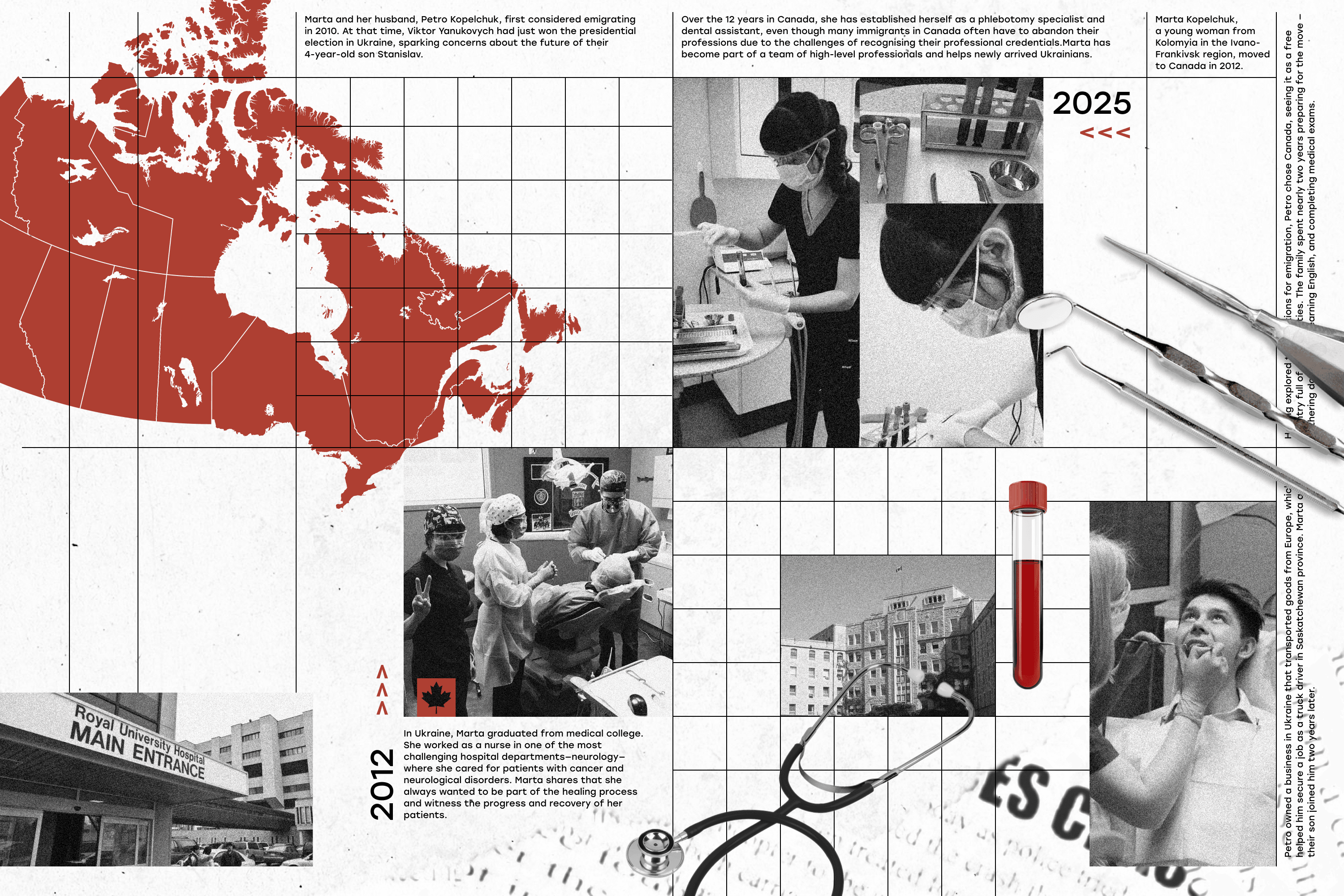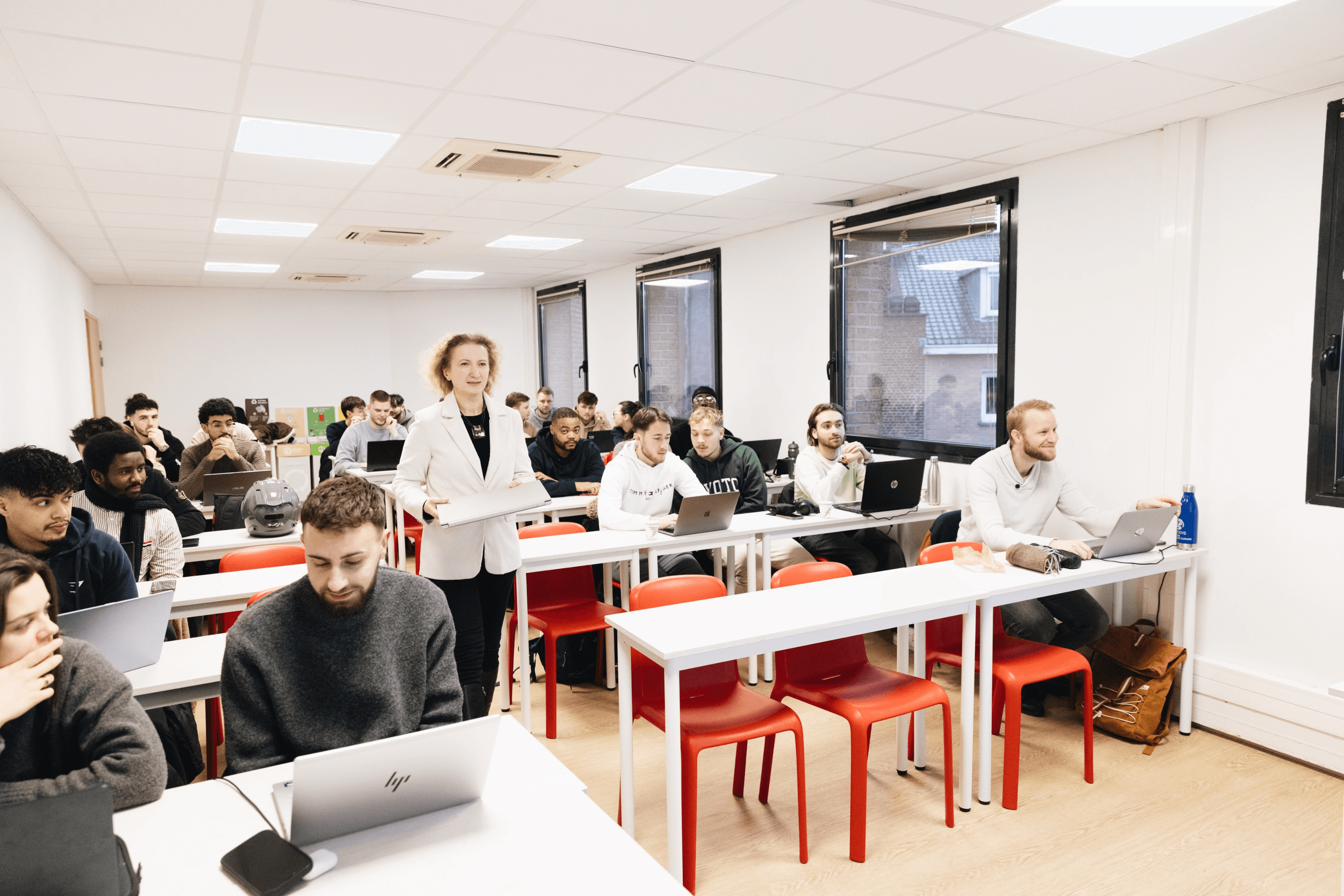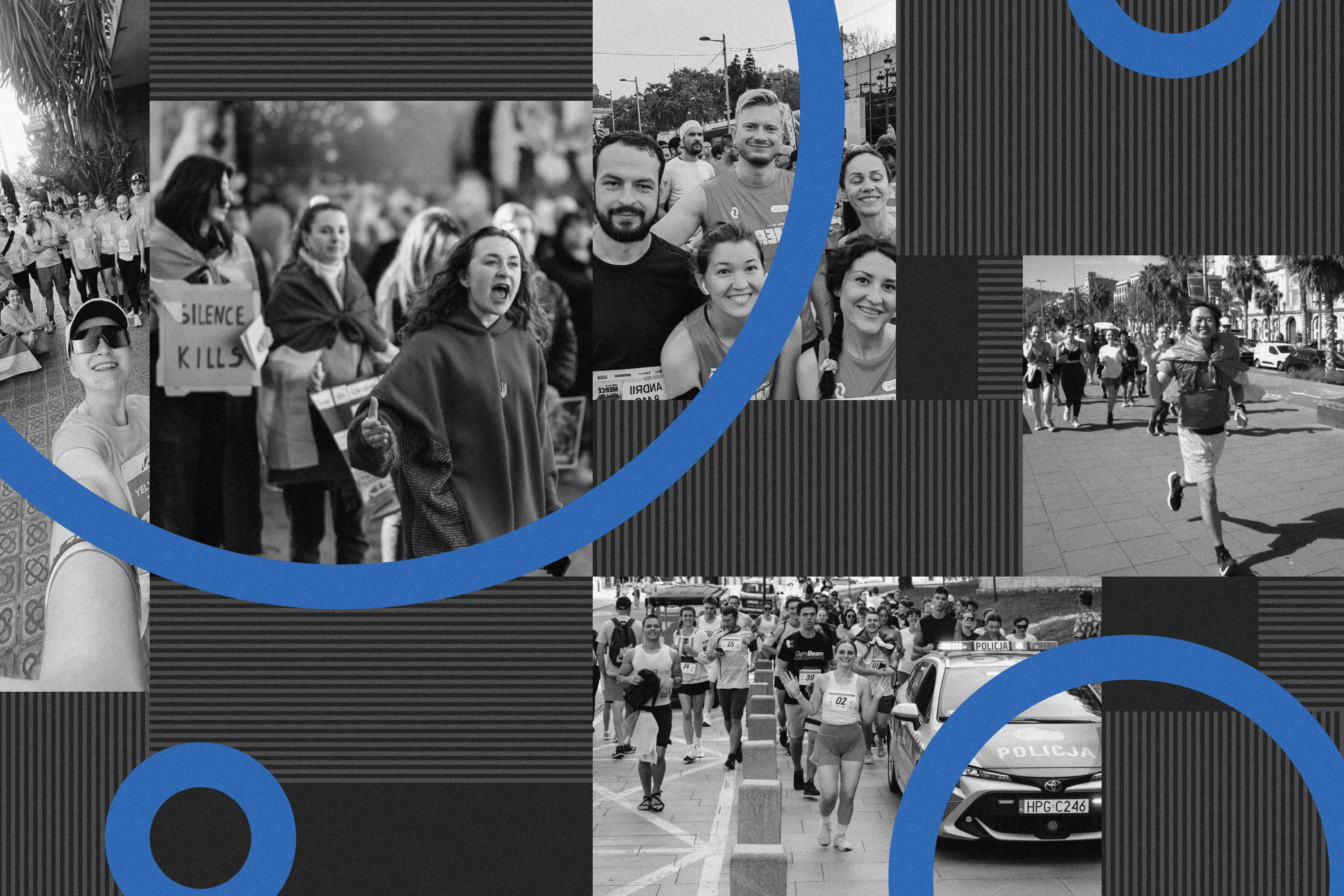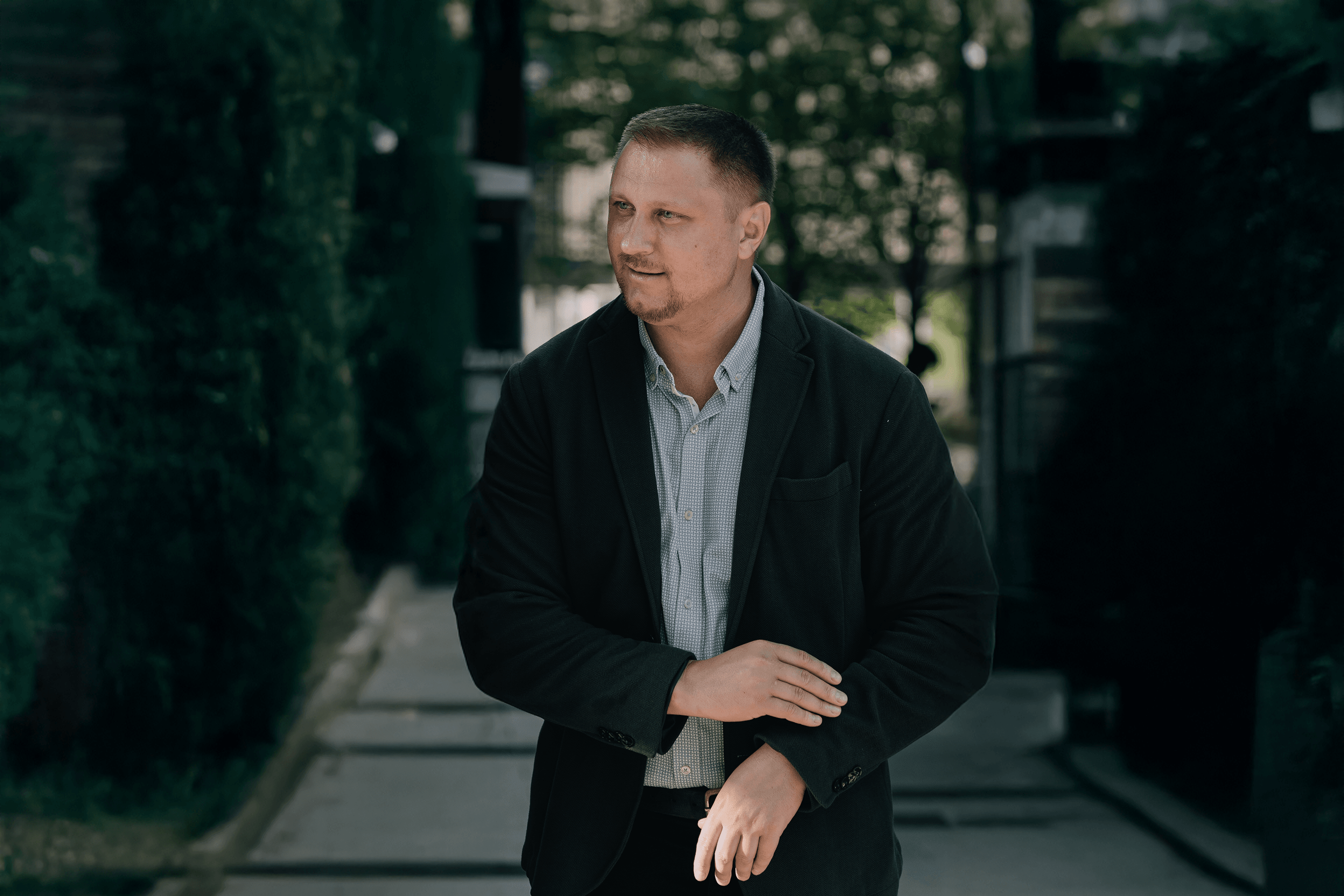Marta Kopylchuk, a young woman from Kolomyia in the Ivano-Frankivsk region, moved to Canada in 2012. Over the 12 years in Canada, she has established herself as a phlebotomy specialist and dental assistant, even though many immigrants in Canada often have to abandon their professions due to the challenges of recognising their professional credentials. Marta has become part of a team of high-level professionals and helps newly arrived Ukrainians. Here is her story.
Marta and her husband, Petro Kopylchuk, first considered emigrating in 2010. At that time, Viktor Yanukovych had just won the presidential election in Ukraine, sparking concerns about the future of their 4-year-old son Stanislav. Having explored their options for emigration, Petro chose Canada, seeing it as a free country full of opportunities. The family spent nearly two years preparing for the move — gathering documents, learning English, and completing medical exams. At the time, immigration to Canada required securing a job offer that matched specific experience, skills, and knowledge. Petro owned a business in Ukraine that transported goods from Europe, which helped him secure a job as a truck driver in Saskatchewan province. Marta and their son joined him two years later.
In Ukraine, Marta graduated from a medical college. She worked as a nurse in one of the most challenging hospital departments, neurology, where she cared for patients with cancer and neurological disorders. Marta shares that she always wanted to be part of the healing process and witness the progress and recovery of her patients. Her responsibilities at the hospital were quite extensive, including administering injections, managing complex IV drips, drawing blood, and assisting during various procedures. Outside of work, Marta was eager to grow, develop, and reach her full potential, which led her to study biochemistry through distance learning.
Upon arriving in Canada, Marta did not rush to take just any job, like cleaning or dishwashing. Instead, she dreamed of establishing herself in her profession. She and her husband agreed that Marta would do everything possible to pursue her professional path, even though their family faced financial challenges.
Marta worked hard to improve her English, supported by her surroundings — the couple settled in the city of Saskatoon, in the cozy East Side Avalon neighbourhood, primarily home to English-speaking Canadians.

She also attended courses provided by the non-profit organization Open Door Society. These courses covered not only English but also Canadian résumé formats, workplace ethics and culture, and the advantages of volunteering.
“Canada is a multicultural country that deeply values respect for individuals. To secure a job, it’s essential to align with societal expectations. No word should ever disrespect another person’s culture or religion,” Marta explains.
She came to Canada on a work visa, which initially limited her ability to study at a local university, as an additional study permit was required. However, after two years in Canada, she got her permanent resident card, which allowed her to pursue education. Marta chose to enroll in a medical laboratory technician program at Saskatchewan Polytechnic, with an annual tuition fee of approximately 10,000 Canadian dollars. To afford her studies, she needed a well-paying job. Achieving this in Canada required more than just a polished résumé, strong English skills, and cultural awareness — it also demanded local work experience. There could be up to 200 applicants for a single job opening, with only about 10 candidates moving forward to the interview stage.
To gain Canadian work experience, Marta volunteered at the Saskatoon Health Region, a public care home for seniors. In Canada, these facilities are classified into different types, with an average annual cost of around 4,000 Canadian dollars, typically covered by residents’ savings.
Marta worked in a care home for people with dementia, caring for patients and engaging in conversations with them, which helped to improve her English skills. She also gained valuable experience by observing how the medical staff operated and getting familiar with the facility’s protocols. Eventually, Marta was offered a permanent position at the care home, however, she had bigger dreams — working at Saskatoon’s university hospital. This hospital is one of the province’s top medical centers, known for its advanced equipment, leading research in cancer treatment, and groundbreaking developments in vaccination.
With her CV, local experience, and a top-rated recommendation letter from the care home where she had worked, Marta began looking for a medical assistant or nurse position. Each evening, she browsed job listings on employment websites. Guardian Dental Care had an opening for a dental assistant, though it was only for three days a week. Marta decided to try, submitted her documents, and was soon invited for an interview. She prepared thoroughly, reviewing common interview questions, gathering all her records, and even bringing an English-translated recommendation from a Ukrainian hospital. Marta arrived a few minutes early, knowing every detail counts. The interview, conducted by the clinic’s owner and his wife, didn’t focus on her professional skills, as her résumé covered them. Their primary question was whether Marta would be a strong team player.
“My willingness to take on challenges and manage a heavy workload impressed them. I was prepared to handle any difficult situation at work. They also asked about my approach to conflicts, as conflict management skills are highly valued in Canadian workplaces, being someone who can easily tackle challenges,” Marta shares. Ultimately, she got the dental assistant job, earning 16 Canadian dollars an hour. Her responsibilities included greeting patients, maintaining clinical records, and sterilizing instruments.
Marta’s day began at 7 a.m. when she left home to drop her child off at school to start work by 7:40, so her first patient could be in the dental chair by 8:00. After work, she would pick up her child from school.

Upon graduating from Saskatchewan Polytechnic, the clinic offered Marta a promotion, a full-time position, and a higher salary. Meanwhile, the end of her course required a practicum in a lab. Marta requested to be placed in the university hospital lab she had dreamed of. Her high grades allowed her to make her dream a reality. At the end of her practicum, she was offered a position there as well, but she chose to stay at the clinic, which had felt like home since her first interview. Marta still isn’t focused on titles or money, she is driven by a desire for knowledge and new skills. She now even assists the clinic owner, an American married to a Canadian, Lisa, whose grandmother came to Canada with the first wave of Ukrainian immigrants.
Marta’s workday is busy — she assists two dentists and a therapist and helps newly arrived Ukrainians by explaining the local insurance system, clarifying treatment plans, and scheduling appointments. Ukrainian newcomers make up about 40% of the clinic’s patients. Marta observes that Ukrainians initially tend to distrust the Canadian healthcare system, they often bring their own medications, worrying that they will be charged for unnecessary procedures. Marta is committed to breaking down these misconceptions.
By helping newly arrived Ukrainians, Marta and her family have also adapted and integrated into Canadian life. Her eldest son, Stanislav, is now 18, and her younger son, Stephan, born in Canada, is only 5. Stanislav recently graduated from high school and has enrolled at the University of Arts and Sciences in Saskatchewan, where he will be studying to become an IT specialist.
Marta envisions her future with Guardian Dental Care, as this is where her dreams have come to life. Her husband Petro has also found success as a private entrepreneur. He founded MPS Trucking in Calgary, Alberta, and now transports goods to the United States. Marta describes her family as truly fortunate. “What I love most is the kindness and openness of Canadians. I’m grateful to this country for the chance to work, grow, travel, and support other Ukrainians,” she says.



